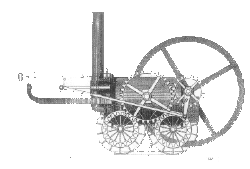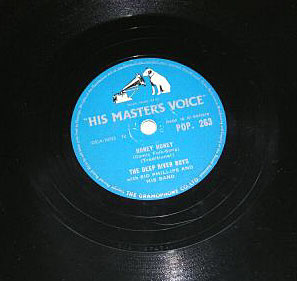|
Home
|
Slavery
|
Places
|
Cornwall
|
Gamlingay
|
Guernsey
|
Bookshop
|
Contact
|
Site Index
|
|
Cornish Folk Songs
 Fair warning: I went to school in Camborne. I also learned to sing and to drink in Camborne, in fact at the same time. Not every night, and certainly not in every pub in town, but often enough, someone would start singing one of about half-a-dozen songs, all of which I learned by joining in - and have never forgotten. These Cornish folk songs were sung elsewhere as well: the Blue Anchor in Helston (in my view the best pub in the world) being a prime example. I've given the words to these songs below, and instead of giving the 'textbook' words, if such a thing exists, I've recorded the words I actually heard - and learned. These are not always the most polite or considerate, but they are the genuine ones.
Fair warning: I went to school in Camborne. I also learned to sing and to drink in Camborne, in fact at the same time. Not every night, and certainly not in every pub in town, but often enough, someone would start singing one of about half-a-dozen songs, all of which I learned by joining in - and have never forgotten. These Cornish folk songs were sung elsewhere as well: the Blue Anchor in Helston (in my view the best pub in the world) being a prime example. I've given the words to these songs below, and instead of giving the 'textbook' words, if such a thing exists, I've recorded the words I actually heard - and learned. These are not always the most polite or considerate, but they are the genuine ones.
This page is about traditional Cornish songs. There are also some fantastic contemporary Cornish folk bands, which I don't deal with here. But the best of the bunch is Dalla - based near Camborne - whose music I wholeheartedly endorse, and thoroughly enjoy. You can get more information about them at http://www.dalla.co.uk/
At the bottom of the page you will find notes to the songs as well as links to relevent sites of interest. At some point in the near future, I'll add some extra folk songs from Cornwall. Keep your eyes peeled...
Camborne HillGoing up Camborne Hill, coming downGoing up Camborne Hill, coming down The horses stood still; The wheels went around; Going up Camborne Hill coming down
White stockings, white stockings she wore
I knowed her old father old man
I had her, I had her, I did
He heaved in the coal - the steam
Going up Camborne Hill, coming down
TrelawnyWith a good sword and a trusty shieldA faithful heart and true King James's men shall understand What Cornish men can do And have they fixed the where and when? And shall Trelawny die? Here's twenty thousand Cornish men Will know the reason why.
Chorus
Out spake the captain brave and bold
And when we came to London wall
|
Little EyesI dreamed a dream, the other nightThe strangest dream of all I dreamed I saw you kissing her Behind the garden wall
Chorus:
I took my true love down the lane And she said: (chorus)
I took her round to my back yard And she said: (chorus)
LamornaSo, now I'll sing to 'eeIts about a maiden fair I met the other evening In the corner of the square She had a wild and roving eyes: We met down to Lamorna And we roved all night In the pale moonlight Away down to Lamorna
Chorus:
As we got in the cab
She said "I knowed 'ee well
|
Notes to the Songs
Camborne Hill:
This song celebrates Richard Trevithick's historic steam engine ride up Camborne Hill to Beacon on Christmas Eve 1801. The steam engine, invented in the late seventeenth century, had been progressively refined for use in Cornish tin mines during the eighteenth century. It was unable to generate enough power for automobility, however, until Trevithick's high pressure engine in 1801. The engine ran up the steep hill towards Beacon Village amid crowds of interested onlookers. One of these was Lady de Dunstanville, whose origins were less exalted than her aristocratic title might suggest. The Camborne mob, wasting no opportunity to bring her down to her level, reminded her of her origins and suggested that she could not, even in her newly exalted state, bring herself (or afford?) to buy a new pair of stockings. There is no evidence that the scurrilous suggestion in the fourth verse, always sung in Camborne but rarely printed, is true.
* More information from the Trevithick Society
Trelawny:
The correct title of this song is: 'The Song of the Western Men'. Most of it was written in 1825 by R.S. Hawker (1804-1875), the celebrated 'Vicar of Morwenstow'. He extrapolated the song from the well-known Cornish proverb:
And shall Trelawny die?The Trelawny in question was Sir Jonathan Trelawny, Bishop of Bristol, one of seven bishops imprisoned in the Tower of London by James II in 1687. The Cornish, staunchly Catholic at the time of the Reformation, had now turned staunchly Protestant and were vocal in his defence - although the threatened rebellion failed to materialise. Many people have erroneously supposed the song to be ancient, among them, Sir Walter Scott, Lord Macaulay, and Charles Dickens.
Here's twenty thousand Cornish men
Will know the reason why!
Little Eyes:
Merv Davey, in Hengan: Traditional Folk Songs, Dances and Broadside Ballads collected in Cornwall (Redruth: Dyllansow Truran, 1983), notes that this song is 'quite a remarkable example of the way in which a song can be adopted into the traditional repertoire of a community' [p.12]. Little Eyes was apparently introduced to Cornwall as a song called Honey Honey, released in the 1950s by an American close harmony group called the Deep River Boys as the B side to their disc Deep River (HMV POP 263 - 78rpm). It was then taken up by a Camborne band called the Joy Boys, became a local hit and, with by now many changes to the words, remains popular in West Cornwall long after the rest of the world has forgotten it.
The Great Little Eyes/Little Lize Debate...Several of you have written in with your thoughts about the song. There continues to be a debate over whether the song is called Little Eyes, as it is always called in Cornwall, or the somewhat more endearing Little Lize. Having researched this further, I'm convinced that it is 'Lize' and not 'eyes'. In any case, the Deep River Boys called it Honey Honey!The Deep River Boys version is itself not the original. The record label gives the song as 'Comic Folk-Song - Traditional'. John Gimson dropped me a line in October 2012 to let me know that an American folksong webpage gives an early version of this song published by Willis Woodward & Co. in 1885 with the title "Your Little Liza Loves You". Some further research reveals that the song was recorded on to an Edison wax cylinder a few years later in 1891 by Len Spencer and, according to music historian James M. Salem, became the first ever number one hit in history! If you find a link to this early recording, please let me know... |

|
Lamorna:
The origins of this song are unclear. Merv Davey thinks it might be a music hall song. The reference to Albert Square almost certainly makes it post 1840 (when Albert married Victoria) and probably much later. Despite several well-known squares of that name, including a real one in Manchester and a fictional one on the BBC soap opera Eastenders, there is no Albert Square in Penzance or Lamorna. See my Main Cornwall Page for an image of the village of Lamorna. Regardless of its origins, it remains one of the most popular songs in Camborne and the rest of Cornwall.
The Great Lamorna Debate...
Several of you have written in with your thoughts about the song.Ian Stuart from Bakewell wrote in to say that Lamorna Docks in Manchester used to be right next to Manchester's Albert Square. So it looks as though, in its origins, this is a Manchester song, not a Cornish song.
Mike O'Connor has another theory:
"I have a growing confidence the song was written by the author Charles Lee, who lived in Cornwall from 1900 to 1907 and resided for much of that time in Lamorna. He had a great reputation for writing very clever parodies and light-hearted songs, some for reviews, pantomimes and the like.
Brenda Wooton told me that in the 1950's an old man told her 'I wrote that' after a performance of Lamorna in Newlyn. He was apparently revisiting 'old haunts'. At the time Brenda did not believe the claim, but in later life she suspected it might have been true.
I think the visitor might have been Charles Lee making a farewell visit to Cornwall, knowing his days were numbered.
(By the way, I think the docks in Manchester are called Pomona, not Lamorna. Still, Lee could easily have taken as his starting point a song from Manchester music hall.)"
What are your views? Please write to me with your thoughts and contributions.
Listen to the songs!
Before his death, Brian Jelbert made recordings of these songs available on the web, mostly in versions sung by Brenda Wooton and John the Fish. Several other Cornish songs can also be found at his page, now maintained by his brother Roger. The page is at:http://www.rogerj.co.uk/music.htm
Back To Top | Main Cornwall Page | Brycchan's Homepage
* This page last updated 7 October 2012 *